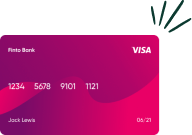
In the pursuit of financial control, traditional budgeting often feels like a rearview mirror exercise, tracking where money has already gone. Zero-based budgeting (ZBB) flips this approach entirely, acting as a proactive and intentional blueprint for where every dollar will go before a new month begins. This method requires assigning a specific purpose to every single unit of income, so that income minus expenses equals zero. It is not about restriction but about mindfulness, transforming a budget from a passive log into an active plan that ensures financial resources are directed toward personal priorities with maximum efficiency and purpose.The process of
zero-based budgeting begins each month with a blank slate. Every dollar of anticipated income is allocated to categories until nothing remains. These categories extend beyond mere expenses to include savings, investments, and debt repayment. An
emergency fund contribution, a Roth IRA deposit, and an extra student loan payment are all given their own line items, treated with the same importance as the rent or grocery bill. This method forces a conscious evaluation of spending habits, revealing wasteful subscriptions or discretionary spending that might otherwise go unnoticed in a more traditional budget. Every expenditure must be justified anew each month, aligning cash flow with current goals and values.The profound benefit of this system is the complete elimination of financial ambiguity. It provides absolute clarity on how much can be safely spent in each area of life, reducing the anxiety that comes with uncertain financial boundaries. This granular control is particularly powerful for achieving short-term goals, such as saving for a vacation or paying off a credit card, as funds can be deliberately funneled toward these objectives. The discipline of ZBB cultivates a heightened awareness of the trade-offs inherent in financial decisions; choosing to allocate more to dining out may mean allocating less to a hobby fund, making the cost of every choice explicitly clear.Ultimately,
zero-based budgeting is a practice in financial mindfulness that empowers individuals to become the deliberate architects of their financial lives. It ensures that money is working purposefully, whether that purpose is covering essential needs, securing the future, or enabling enjoyment today. While it demands more time and engagement than set-and-forget budgeting apps, the reward is unparalleled control and a deep understanding of one’s financial flow. By giving every dollar a mission,
zero-based budgeting transforms personal finance from a reactive chore into a strategic and empowering tool for building the life one desires, proving that true financial freedom is born not from the amount of money one has, but from the intention with which it is used.



 In the pursuit of financial control, traditional budgeting often feels like a rearview mirror exercise, tracking where money has already gone. Zero-based budgeting (ZBB) flips this approach entirely, acting as a proactive and intentional blueprint for where every dollar will go before a new month begins. This method requires assigning a specific purpose to every single unit of income, so that income minus expenses equals zero. It is not about restriction but about mindfulness, transforming a budget from a passive log into an active plan that ensures financial resources are directed toward personal priorities with maximum efficiency and purpose.The process of
In the pursuit of financial control, traditional budgeting often feels like a rearview mirror exercise, tracking where money has already gone. Zero-based budgeting (ZBB) flips this approach entirely, acting as a proactive and intentional blueprint for where every dollar will go before a new month begins. This method requires assigning a specific purpose to every single unit of income, so that income minus expenses equals zero. It is not about restriction but about mindfulness, transforming a budget from a passive log into an active plan that ensures financial resources are directed toward personal priorities with maximum efficiency and purpose.The process of 

